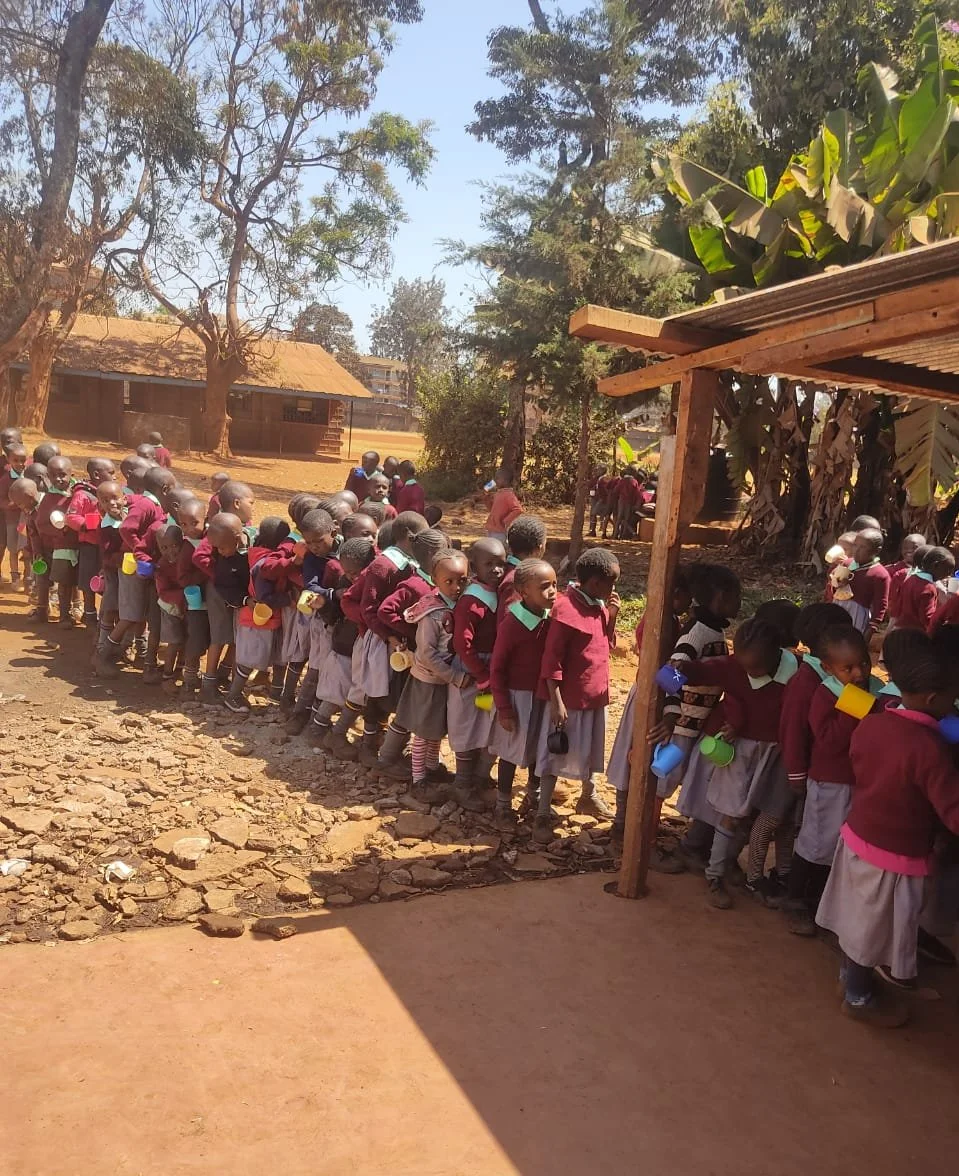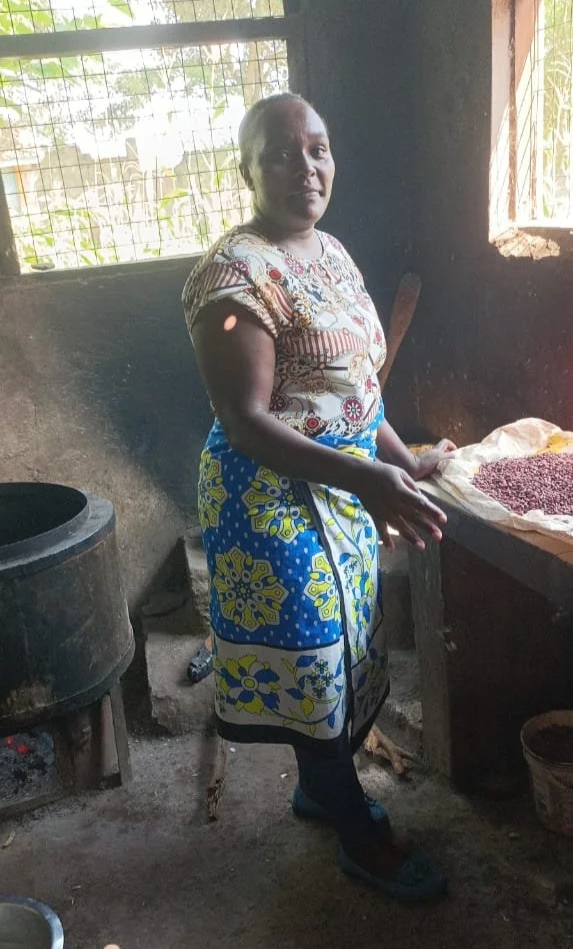Watoto Kwanza Q&A
Hi, I am Lillie a Year 12 student at Wood Green School completing a week of work experience with African Children’s Fund. In the future I am hoping to study human geography at university! I spoke to and had a Q&A meeting with Josephine and Peter of Watoto Kwanza who run the Porridge Clubs programme also the Education All Month, Every Month programme in Kenya. They shared their knowledge and information with me so I could learn more about what the programmes do and also find out more in detail what life is like for families and students in Kenya.
How do you prioritise which schools and areas get the porridge?
The programme started with 2 schools in 2015. It has since expanded with Porridge Clubs operating in 13 schools at the moment. Watoto Kwanza has chosen these schools based on where the highest needs of the most marginalised students are located. They have also had requests from certain schools to establish Porridge Clubs due to the families in those areas lacking the funds to afford to buy their children food. Watoto Kwanza currently works in Murang’a and Kiambu Counties.
How do you ensure that the inequality gap does not worsen?
Every student in a participating school receives a mug of porridge. This is because they do not want students to be singled out by their family’s income and the programme unifies the students within the school.
How often do you distribute porridge ingredients or sanitary towels?
Watoto Kwanza distributes porridge every Monday, with collection from a central location. This is given as dry ingredients to the school which is then heated by the cook with water before giving it to the students each morning. Some schools provide two mugs of porridge each day. They give a different amount of ingredients to each of the schools based on the number of students at each one. The programme also pays part of the cook’s wage to help cover this cost for the school.
The sanitary towels are delivered to participating schools monthly, and these are sometimes donated to Watoto Kwanza from local businesses or community members.
What changes have you seen in schools since introducing these programmes?
The children are healthier and cleaner which leads to a lack of absenteeism in schools. They also have more energy for playing due to being properly nourished. All of these factors lead to higher school retention (fewer children dropping out of primary school) and a higher percentage of students carrying on to high school.
The Porridge Clubs programme doesn’t run during school holidays and children often return to school more frail than when they left, though they build up their strength again after a couple of weeks. Watoto Kwanza delivers food packages to the families most in need during the long Christmas holidays.
How have the students changed since introducing these programmes?
They are happier and more energetic, and less sleepy in class. This has led to academic improvement as they have more focus in class. Kenya has also recently changed its school system with a new Competency-Based Curriculum which focuses more on the students’ specific talents – including arts, sports and technical subjects, rather than solely supporting those who are traditionally Academic. This has been positive for many reasons: it is more efficient, it supports a wider range of the students and is also more meaningful to the students as it offers well-defined pathways post-primary school.
Do you think that these programmes will always be needed?
Josephine believes that these programmes will certainly be needed in the long-term, based on trends within the Kenyan economy. By providing children with porridge, it ensures that they continue to attend and make the most of their education. By being at school, they are receiving a wide range of life skills, independence and self-confidence which will give them the potential to receive higher paying jobs in the future. This will break the poverty cycle for many. However, there will be more demand for this programme if Kenya’s economy worsens, and more families need the help that the Porridge Club programme offers.
What challenges do you think the projects will face in the future?
The Kenyan economy is not currently in a strong position – prices for porridge ingredients have doubled and changes to VAT have also had an effect on the cost of goods. As Watoto Kwanza is a small, volunteer-led organisation, they haven’t historically been in a position to fundraise locally. This leads to a reliance on funding from African Children’s Fund, which presents a risk to the organisation and its programmes.
What are your hopes for the project in the future?
Watoto Kwanza would like to expand their local fundraising by creating a volunteer programme. This will allow them to receive funding for their projects at a local level. This means that they develop another source of income and are not just reliant on one source.
What conditions do you think lead to children needing support to attend school? – Is it societal, political or geographic?
They believe that the main cause is geographic. Many of the communities Watoto Kwanza supports are marginalised due to the area they are located in. For example, Kenya’s Coffee Zone has struggled and consequently, many of the farms have been sold to residential developers. These coffee farms had collapsed due to demand and supply problems. Small Kenyan farms have been unable to compete with the large-scale international producers and price fluctuations.
The closure of the farms leaves a large percentage of the coffee zone population jobless. The workers were previously given accommodation connected to the farms so when the farms closed, their houses were lost too, and they cannot afford the houses that are being built on the land that they used to work on. This results in them living in informal settlements and crowded areas with shared toilets where disease spreads quicker and the parents struggle to get another job.
The families require help from programmes like Porridge Clubs to encourage education which will break the poverty cycle for their children.
The lack of income combined with recent USAID cuts also results in many families no longer being able to afford medication that they require to live a healthy life. For example, people with HIV and AIDS can no longer afford the Anti-Retroviral drugs (ARVs) to contain the disease. Simply put, food and shelter are more important and are what families spend their money on first. Many of the children supported by the Porridge Clubs programme come from low-income, single parent households. With inevitable increases in HIV/AIDS deaths as a result of unaffordable medicines, there will be an increase in Granny-headed or child-headed households where older siblings looking after younger siblings. Therefore, they become even more reliant on schemes like the Porridge Clubs, as the source of income for these families has declined even further.
What causes adults to not earn enough money to support their families in the way that they would like?
Many parents of children supported by Watoto Kwanza programmes lack formal education which means that they do not have the skills to be employed in a high paying job. Their situation has worsened since the coffee farms have collapsed and this leaves many unemployed or reliant on casual labour where they earn £1-£1.50 per day. This means that they cannot afford the necessities for themselves, let alone their families. The Porridge Clubs in these areas enable children to go to school as they and their parents know they will be fed, breaking the cycle of deprivation.
Thank you Josephine and Peter for taking the time to talk to me and educating me further on the programmes. If you would like to support the work that the Kenyan programmes do then please donate here or click on the button below!



